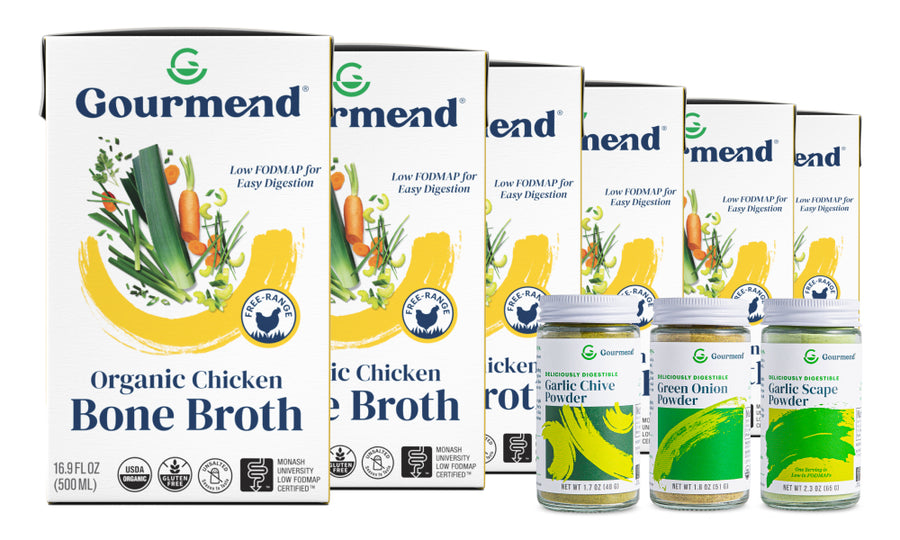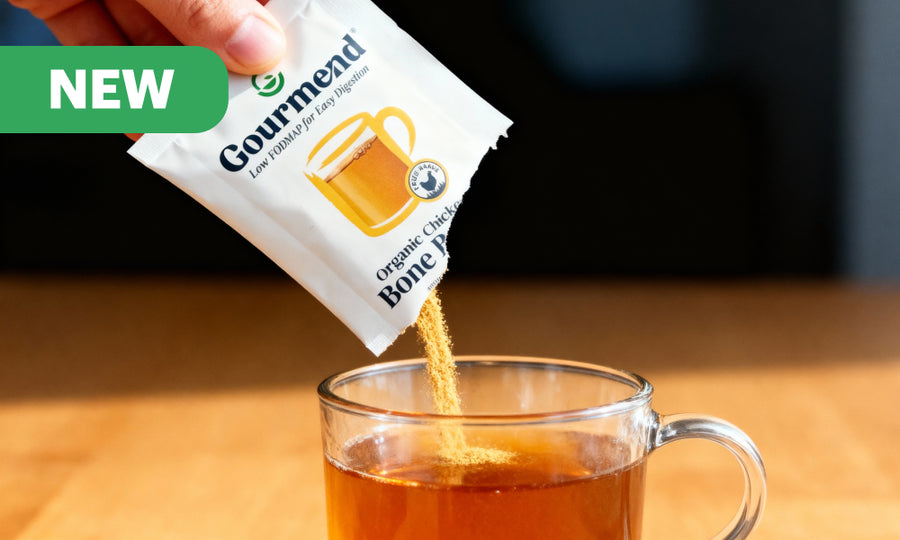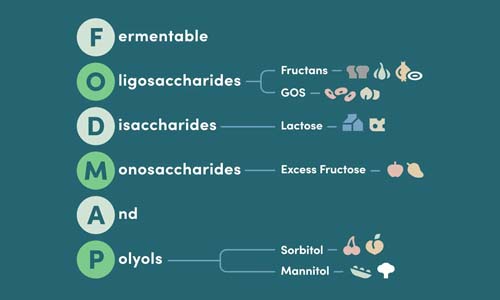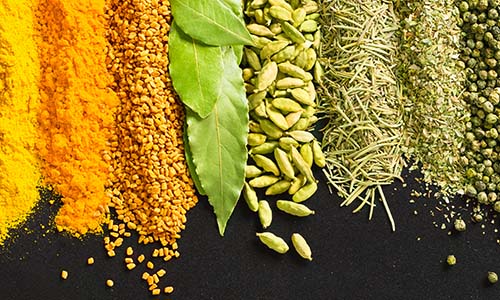Is Avocado Low FODMAP? Your Essential Portion Guide

If you've been wondering whether avocado fits into your low FODMAP diet, you're not alone—and the answer might surprise you. Yes, is avocado low fodmap in small portions, but recent scientific discoveries have completely changed how we understand this beloved fruit. Thanks to groundbreaking 2024 research from Monash University, we now know that avocados contain a unique sugar called perseitol, not just the sorbitol we thought was causing digestive issues all these years.
Key Takeaways
- Avocado can be included in a low FODMAP diet when consumed in small portions.
- Recent 2024 research from Monash University has updated our understanding of avocado's sugars.
- Avocados contain a unique sugar called perseitol, not just sorbitol as previously believed.
- This new discovery may explain why avocados affect digestion differently than once thought.
Table of Contents
- Understanding FODMAPs and Digestive Health
- Avocado FODMAP Content: New Scientific Insights
- Perseitol: What This Means for Your Gut
- Updated Avocado Serving Sizes and FODMAP Guidelines
- Managing Avocado Consumption on Your Low FODMAP Diet
- Other Low FODMAP Foods That Are Portion-Dependent
- Final Thoughts on Avocado and Your Low FODMAP Journey
This discovery matters because it affects exactly how much avocado you can enjoy without triggering IBS symptoms. For those of us managing digestive sensitivities, understanding these updated serving guidelines can mean the difference between missing out on creamy, nutrient-dense avocados and confidently adding them back to your meals. If you're looking for easy ways to get started with a low FODMAP lifestyle, check out our Low FODMAP Starter Bundle for essential pantry staples.
Understanding FODMAPs and Digestive Health
FODMAPs—short for Fermentable Oligo-, Di-, Mono-saccharides, and Polyols—are naturally occurring sugars found in many everyday foods. When you have IBS or digestive sensitivities, these compounds can ferment in your gut, leading to uncomfortable symptoms like bloating, gas, cramping, and changes in bowel movements. For more in-depth information on FODMAPs and their impact, you can visit the Monash FODMAP website.
Here's what makes this particularly relevant: nearly two-thirds of Americans experience digestive issues, and about 1 billion people worldwide live with IBS. For many of these individuals, following a low FODMAP approach has become a game-changer for managing symptoms and reclaiming confidence around food.
The tricky part about FODMAPs is that they're not inherently "bad"—they're just poorly absorbed by some people's digestive systems. When these undigested sugars reach your large intestine, gut bacteria ferment them rapidly, creating gas and drawing water into your bowel. The result? Those familiar IBS symptoms that can derail your day.
Avocado FODMAP Content: New Scientific Insights
For over 15 years, nutritionists and gastroenterologists recommended that people avoid avocados during the low FODMAP elimination phase. Early research identified avocados as high in sorbitol, a sugar alcohol known to trigger digestive symptoms in sensitive individuals. This meant that ibs avocado combinations were generally discouraged, leaving many people to miss out on this nutritious fruit.
But science evolves, and so does our understanding of food chemistry. In 2024, Monash University—the gold standard for FODMAP research—decided to retest avocados using more advanced analytical methods. What they discovered was remarkable: avocados don't primarily contain sorbitol at all.
Instead, researchers identified perseitol as the dominant polyol in avocados. Using High Performance Liquid Chromatography (HPLC), they found that this unique sugar compound had been misidentified in earlier studies. Perseitol is actually larger than sorbitol at the molecular level, which means it may create even stronger osmotic effects in your gut—potentially explaining why some people experience significant symptoms after eating avocado.
Perseitol: What This Means for Your Gut
Perseitol is essentially avocado's signature sugar. Unlike the more common polyols like sorbitol and mannitol found in other fruits, perseitol appears to be unique to avocados. This discovery helps explain why some people who tolerate other low FODMAP fruits just fine still struggle with avocado—even in small amounts.
The larger molecular size of perseitol means it's likely to pull more water into your intestines through osmotic action. Think of it like a stronger magnet for water molecules, which can lead to looser stools and increased urgency. Additionally, when gut bacteria ferment perseitol, the process may produce more gas than other polyols, contributing to bloating and discomfort.
What's particularly interesting is that unripe avocados contain significantly more perseitol than ripe ones. As avocados ripen, the polyol content naturally decreases, making ripe avocados a better choice for those with sensitive digestive systems. This explains why timing your avocado consumption based on ripeness can make a real difference in how you feel afterward.
While research on perseitol's specific gut effects is still limited, Monash continues to classify it as a FODMAP due to its probable symptom-triggering potential. The good news? This new understanding has led to updated serving size recommendations that allow many people to enjoy avocados in moderation while staying within low FODMAP guidelines.
Updated Avocado Serving Sizes and FODMAP Guidelines
Thanks to Monash University's 2024 research breakthrough, we now have much clearer guidance on exactly how much avocado you can enjoy while staying within low FODMAP limits. The updated serving sizes reflect the perseitol content discovery and offer more flexibility than the previous "avoid completely" recommendation.
Here's what the current science tells us: up to 1/8 of an avocado (about 30 grams) earns a solid green light as low FODMAP. You can actually go up to about 60 grams—roughly 1/4 to 1/3 of an average avocado—and still stay in the low FODMAP range. This is fantastic news for those of us who've been missing that creamy texture and rich flavor in our meals. For delicious meal inspiration, browse our Low FODMAP recipes collection.
Once you hit around 80 grams (about half an avocado), you're moving into moderate FODMAP territory, which Monash marks with an amber or yellow light. At 90 grams and above, you're definitely in high FODMAP territory and likely to experience symptoms if you're sensitive to perseitol.
Choosing Ripe vs. Unripe Avocados
Remember that perseitol content decreases as avocados ripen, so your best bet is choosing perfectly ripe fruit. A ripe avocado should yield slightly to gentle pressure but not feel mushy. The skin might be darker, and it should feel heavy for its size.
If you're particularly sensitive, avoid those rock-hard avocados that need several days to ripen. The higher perseitol content in unripe fruit means you're more likely to experience digestive discomfort, even within the recommended serving sizes.
Avocado Oil: A FODMAP-Free Option
Here's some excellent news for those wondering is avocado oil low fodmap: it absolutely is. Since avocado oil contains no carbohydrates, it's completely FODMAP-free and safe for even the most sensitive digestive systems. You can use it freely for cooking, salad dressings, and marinades without any concern about perseitol or other polyols. If you're looking for more FODMAP-friendly pantry staples, our Gourmend Sampler is a great place to start.
This makes avocado oil an excellent way to get some of that rich, buttery avocado flavor into your cooking when you want to save your actual avocado serving for something special, like a perfectly portioned addition to your morning toast or a carefully measured guacamole.
Managing Avocado Consumption on Your Low FODMAP Diet

The key to successfully including avocados in your low FODMAP diet is treating them like any other portion-sensitive food. Just like you might measure out a specific amount of almonds or limit yourself to half a cup of cooked pasta, avocados require the same mindful approach to serving sizes. For a curated selection of essentials, explore our Ultimate Low FODMAP Starter Kit to make meal planning easier.
During your elimination phase, stick to that 30-60 gram range and pay attention to how your body responds. Some people find they can tolerate the full 60 grams without issues, while others do better with smaller portions. Keep a food and symptom diary to track your individual response—this information will be invaluable when you move into the reintroduction phase.
When you're ready to test your tolerance, consider doing a separate food challenge specifically for avocado. Start with the low FODMAP serving size and gradually increase over several days, monitoring your symptoms carefully. This approach helps you determine your personal threshold and gives you confidence about how much avocado you can enjoy in your regular meal rotation.
The updated research on perseitol content means that are avocados low fodmap is no longer a simple yes or no question—it's about finding the right portion size for your individual digestive system. With careful attention to serving sizes and ripeness, many people can successfully reintroduce this nutritious fruit into their diets and enjoy all the culinary possibilities it offers. For more tips and guidance, check out our Learn section.
Using the Monash FODMAP App for Guidance
The Monash FODMAP app remains your most reliable resource for current serving size recommendations, especially given the 2024 updates about perseitol content. The app's traffic light system makes it easy to see at a glance whether your planned avocado portion falls into the green, amber, or red zone.
What we love about the updated app is how it acknowledges that many people can handle moderate amounts of certain foods without symptoms. The amber rating for larger avocado servings gives you flexibility to experiment within reason, rather than following an overly restrictive approach that might not be necessary for your individual tolerance level.
Other Low FODMAP Foods That Are Portion-Dependent
Avocado isn't the only food where serving size determines whether it fits into your low FODMAP plan. Understanding this concept helps you maximize variety in your diet while staying within your comfort zone for digestive symptoms.
Foods like almonds, sweet corn, and even certain grains follow similar patterns—perfectly fine in smaller amounts but potentially problematic in larger servings. Lima beans and butter beans can be enjoyed in modest portions, while wheat pasta has specific serving limits that keep it in the low FODMAP category. Even chocolate chip cookies have a green light serving size, though it's smaller than most of us would prefer. For more meal ideas that fit your dietary needs, try our Low FODMAP Foodie Bundle for inspiration.
This portion-awareness approach means you don't have to completely eliminate foods you enjoy. Instead, you learn to work with appropriate serving sizes that support your digestive comfort while maintaining the pleasure and variety that makes eating enjoyable. You might also enjoy our recipe for Ultimate Low FODMAP Frittata for a delicious, portion-friendly meal.
Final Thoughts on Avocado and Your Low FODMAP Journey
The discovery of perseitol and the updated serving size guidelines represent exactly the kind of scientific progress that makes the low FODMAP diet more livable and less restrictive over time. For those of us managing IBS or other digestive sensitivities, having clear, research-backed guidance about is avocado low fodmap removes the guesswork and anxiety around food choices.
Remember that your individual tolerance may vary, and what works perfectly for one person might not work for another. Start with the recommended serving sizes, pay attention to your body's signals, and work with a qualified healthcare provider or dietitian when making significant changes to your diet. With patience and careful attention to portions, you can likely enjoy avocado as part of a varied, satisfying low FODMAP eating plan that supports both your digestive health and your culinary happiness.
Check out our Low Fodmap Bundles
Frequently Asked Questions
Is avocado ok with IBS?
Avocado can be tricky for people with IBS because it contains moderate to high amounts of sorbitol, a type of FODMAP that may trigger symptoms in sensitive individuals. However, small servings of avocado (around 1/8 to 1/4 of a fruit) are often tolerated by many with IBS. It's best to start with a small portion and monitor your symptoms before consuming larger amounts.
Is avocado gut friendly?
Avocado is generally considered gut-friendly due to its high content of fiber, healthy fats, and nutrients like potassium and magnesium, which support digestive health. However, for those sensitive to FODMAPs, the sorbitol content in avocado may cause digestive discomfort. Overall, avocado can promote gut health when eaten in appropriate portions.
Why is avocado not FODMAP?
Avocado is actually considered a high FODMAP food when eaten in large amounts because it contains sorbitol, a sugar alcohol that can ferment in the gut and cause symptoms like bloating and gas. Small servings of avocado are low in FODMAPs and usually safe for most people with IBS. Thus, avocado is not entirely 'FODMAP-free' but can fit into a low FODMAP diet in controlled amounts.
Is avocado ok for diarrhea?
Avocado’s high fiber content can help regulate bowel movements, which may be beneficial for some people experiencing diarrhea. However, because it also contains sorbitol, it might worsen diarrhea symptoms in sensitive individuals. If you're prone to digestive upset, it's best to consume avocado in small amounts and see how your body reacts.
What three foods make IBS worse?
Common foods that can exacerbate IBS symptoms include high FODMAP items like onions, garlic, and wheat, as they contain fermentable carbohydrates that feed gut bacteria and cause gas and bloating. Additionally, fatty and fried foods, as well as caffeine and alcohol, can irritate the gut and lead to discomfort. Everyone’s triggers vary, so identifying personal sensitivities is key.
Do avocados cause gas and bloating?
Avocados can cause gas and bloating in some people because they contain sorbitol, a fermentable carbohydrate that can be difficult to digest for those with sensitive guts. Eating large amounts of avocado increases the likelihood of these symptoms. However, many people tolerate small servings without any issues.






